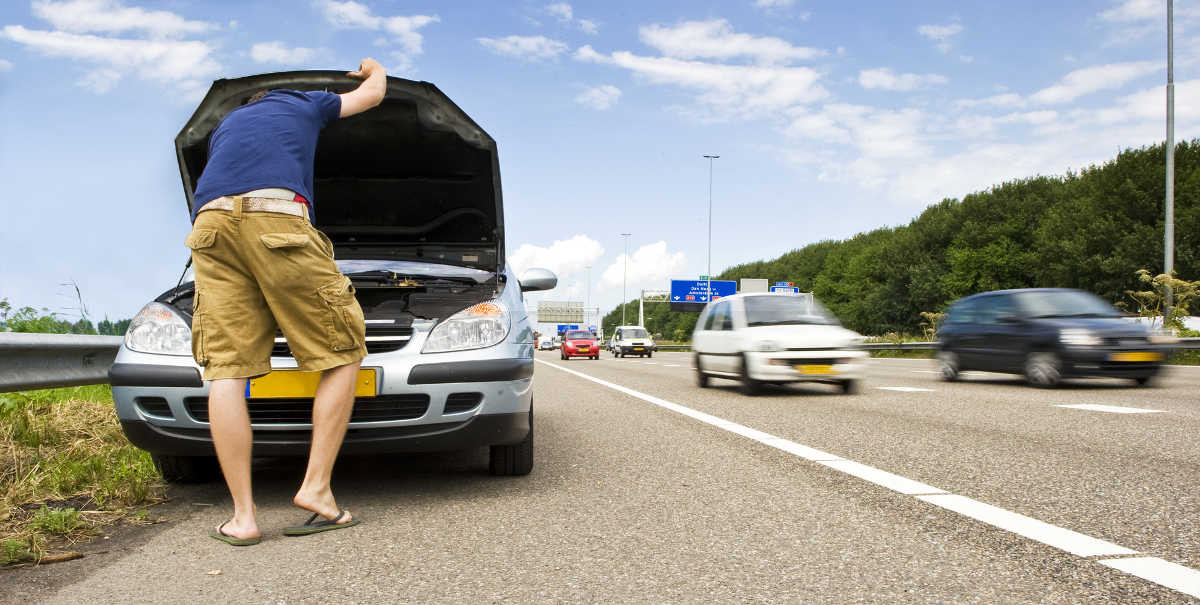Experiencing your car suddenly stalling or dying while driving can be a frightening and stressful experience. Knowing how to handle this situation calmly and safely is crucial for every driver. At Get Drivers Ed, we emphasize the importance of preparedness and quick thinking in such scenarios to ensure your safety on the road.
Understanding the Situation
Imagine you're driving along, enjoying your day, and suddenly your car loses power. This can happen for various reasons such as mechanical failure, electrical issues, or running out of fuel. Understanding how to react and respond in this situation can make all the difference between a minor inconvenience and a dangerous situation.
Immediate Actions to Take:
Stay Calm and Signal: As soon as you notice your car stalling, the most important thing to do is to stay calm. Panic can lead to poor decision-making and increase the risk of an accident. Activate your hazard lights immediately to alert other drivers that there is an issue with your vehicle. This helps prevent accidents and keeps you and other road users safe.
Steer to Safety: If possible, steer your vehicle to the side of the road or onto the shoulder to avoid blocking traffic. Use your car's remaining momentum to guide it to a safe spot. Avoid making sudden moves that could startle other drivers. If you are on a highway, try to reach an exit ramp if it is closer than a shoulder.
Assess the Situation: Once safely parked, assess the situation. Try to determine why your car has stalled. Common causes include an overheated engine, a flat tire, or a complete loss of power. Check your fuel gauge to ensure you haven't run out of gas. If the engine is overheating, you might notice steam coming from the hood or your temperature gauge indicating high heat.
Steps to Take Next
Call for Assistance: If you cannot resolve the issue on your own, call for roadside assistance or a tow truck. Having a reliable service provider's contact information saved in your phone can be invaluable in these situations. Many car insurance policies offer roadside assistance, so it’s a good idea to check your coverage and have their number handy.
Stay Inside: While waiting for help, remain inside your vehicle with your seatbelt fastened. This protects you from traffic and potential hazards. If you must leave the vehicle, ensure you do so on the side away from traffic and stay as far off the road as possible. Use your hazard lights to increase visibility.
Be Prepared: Being prepared for emergencies includes having a basic toolkit, flashlight, and emergency supplies in your car. Get Drivers Ed recommends keeping these essentials on hand to handle unexpected breakdowns. A first-aid kit, blankets, bottled water, and non-perishable snacks can also be lifesavers if you are stranded for an extended period.
Preventative Measures: While it's crucial to know what to do if your car dies while driving, taking preventative measures can help reduce the likelihood of such incidents. Regular vehicle maintenance is key. Ensure your car undergoes routine inspections and services, such as oil changes, brake checks, and tire rotations. Regularly check fluid levels, including oil, coolant, and brake fluid, and keep your fuel tank above a quarter full to avoid running out of gas unexpectedly.
Know Your Vehicle: Understanding your vehicle's basic mechanics can be incredibly beneficial. Knowing how to perform simple tasks like checking your oil, changing a tire, or jump-starting a battery can save you time and stress in an emergency. Familiarize yourself with your car's user manual and take note of any specific instructions for handling common issues.
Stay Informed: Keep yourself informed about any recalls or common issues related to your vehicle model. Manufacturers often issue recalls for safety-related defects, and staying up-to-date can prevent problems before they occur. Subscribe to notifications from your car manufacturer or regularly check their website for updates.
Conclusion
Experiencing a car breakdown while driving can be stressful, but knowing how to react calmly and safely is essential. Remember to stay calm, signal to others, and maneuver your vehicle to safety. Assess the situation, call for assistance if needed, and remain inside your vehicle while waiting for help. At Get Drivers Ed, we prioritize your safety and preparedness on the road. For more tips on safe driving practices and handling emergencies, visit Get Drivers Ed.
Explore our comprehensive driver education courses at Get Drivers Ed and equip yourself with the skills and knowledge to handle any situation on the road. From basic driving techniques to advanced safety measures, our courses are designed to make you a confident and responsible driver. Enroll today and drive with confidence!

